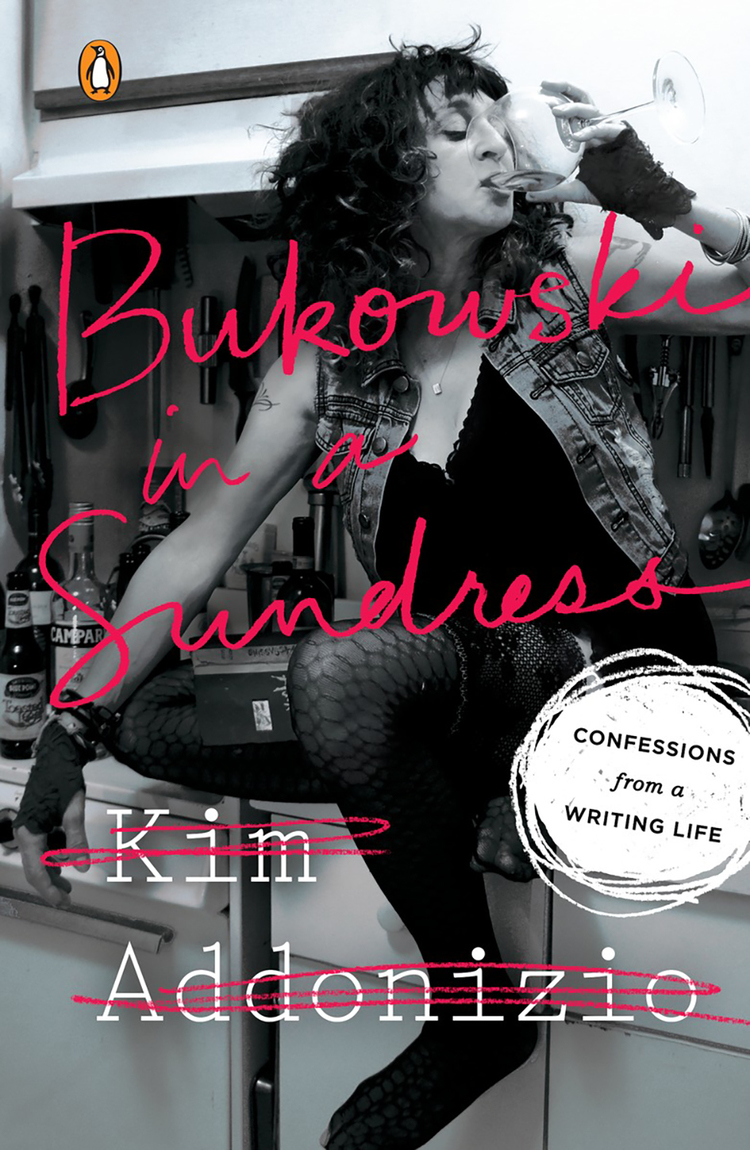In a world of air-brushed gurus peddling desire maps and better living through conscious capitalism, Kim Addonizio’s distinct blend of frank personal reckoning and hard-won insight is refreshing. In short, Addonizio, who splits her time between Oakland and New York, is my kind of flawed, imperfect creative teacher.
Which isn’t to say that I love everything she has to say. I found myself cringing more often than not while reading her new memoir Bukowski in a Sundress: Confessions from a Writing Life (Penguin Books, 2016).

The collection of essays, or confessions, opens with a forthright account of the kind of debauchery you might expect from a book with “Bukowski” in the title. (Addonizio ran with it after one of the judges of the National Book Award, for which she was nominated in 2000, referred to her as “Bukowski in a sundress.”) It’s the last night of a national writing conference and, instead of schmoozing with the literati, Addonizio is stoned and drunk, wandering, looking for a hook-up and further obliteration. Mind you, she’s not a twenty-something student; this is an award-winning novelist, poet, and writing teacher. The fact that she’s in her 50s makes the scene all the better.
After a fruitless search for her “supplier,” a friend who has expensive pot and alcohol, Addonizio goes in search of a free drink. She finds it along with a willing make-out partner in a guy named Ken, a refrigerator technician who’s at the bar because his sister gives him free drinks. They end up back in the hotel room Addonizio is sharing with her friend, who, regretfully I’m sure, is forced to listen to the two tumbling around until dawn. The story ends with Addonizio flying home, hungover, curled up under two thin blankets, thinking about what has transpired.
Sitting on the plane, traveling away from him, Ken Somebody, at hundreds of miles an hour, I could feel his hands sliding down my back and smell the sweat I’d licked from his armpits. I was sick and sour-breathed, and in the white of my left eye a red blotch had appeared and was spreading like some miniature crimson star violently being born. I was a writer who would never be a tenured professor, a throwback writer, the kind who came to conferences and drank too much and committed inappropriate acts with inappropriate people instead of chatting up somebody who might help my career. What career? I couldn’t really connect that word to anything I’d ever wanted as a writer.
The passage is just one of many where Addonizio manages to turn otherwise cliché stories of conquests, affairs, and drunken bravado into something deeper. It’s a fact that writers who dwell in confession risk the subtleties of their stories getting drowned by the ego, and yet Addonizio masters the art of writing about oneself without getting swallowed by the capital I. She veers uncomfortably close at times, but with enough insight and narrative layers to keep the writing from becoming insufferable. (It also helps that she regularly deploys a laser-like sense of humor.)


